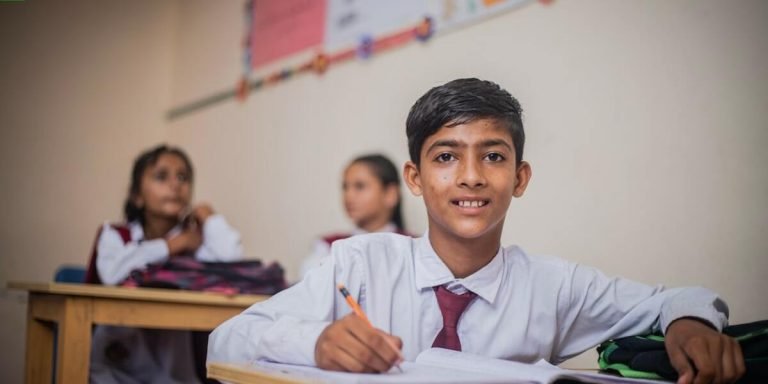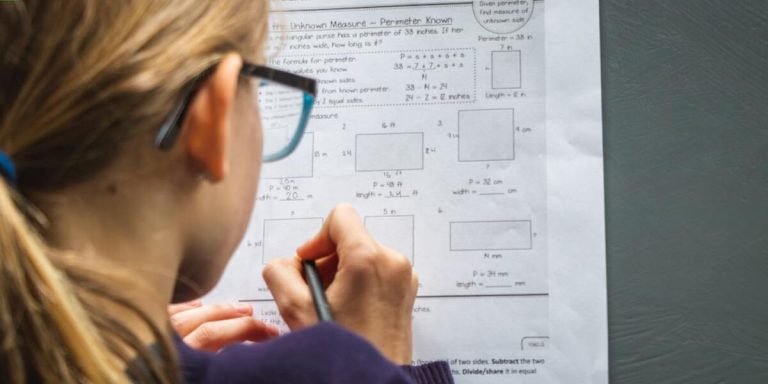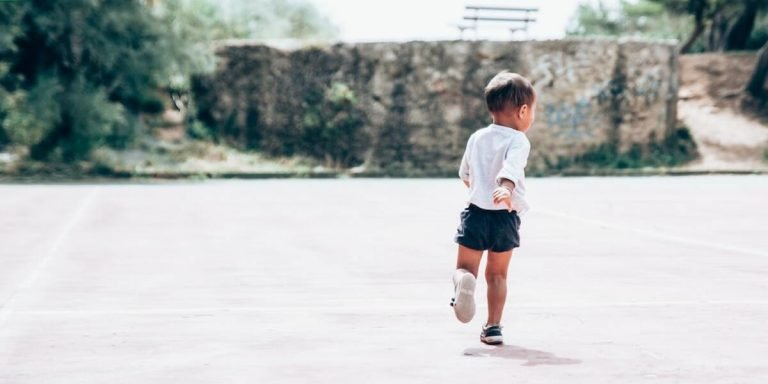Montessori Day Schools: A Comprehensive Approach for Nurturing Young Minds
Montessori Day Schools are rapidly garnering attention among parents and educators for their unique approach towards early childhood education. These schools, based on the Montessori method developed by Dr. Maria Montessori over a century ago, focus on fostering independence, respect for a child’s natural psychological development and their capability to learn.
The pedagogy employed at Montessori day schools greatly impacts how children perceive academics, social interaction and self-discovery process. Aided with meticulously crafted environments which respond directly to each phase of a child’s cognitive growth; these institutions offer more than just an alternative educational system—they nurture holistic character development right from childhood.
Did you know?
Contrary to general perception, the Montessori method isn’t exclusively for preschoolers. Indeed, it was Maria Montessori herself who expanded her methodology up through middle school during her lifetime.
Understanding Montessori Day Schools: A Deep Dive into Methodology
The Montessori day schools offer a unique approach to early childhood education, hinged upon the intrinsic curiosity of young minds. At its core is Dr. Maria Montessori’s groundbreaking methodology – designed over 100 years ago and still very much relevant today in 2023; it emphasizes self-directed learning, hands-on engagement and collaborative play.
In contrast with traditional educational formats where children are passive recipients of knowledge from educators, students at Montessori day schools take ownership of their journey towards holistic development. They have liberty to explore topics that pique their interest within structured environments known as ‘prepared classrooms’. As such, learners acquire practical life skills alongside academic capabilities through interactive materials specifically crafted for each stage of growth.
Furthermore following current trends , these institutions are now integrating technology into the long-standing pedagogical framework driving forward modernized iterations hence making them future-ready . Importantly they strike perfect balance ensuring amplified benefits but without overshadowing key tenets which makes this way special providing optimum blend between progressive digital techniques and time-tested humanistic teaching methodologies like no other system can.
The Core Principles of Montessori Education
Montessori day schools are a popular choice amongst parents and educators looking for holistic development pathways in early childhood education. These schools adopt the core principles of Montessori Education, an innovative teaching methodology that has successfully integrated technology to enhance learning experiences.
One of the key core principles is respect for the child. In montessori day schools, every learner’s individuality is celebrated. Children are given freedom within limits – they have their choices respected but also understand that there’s accountability attached to it.
Another crucial principle lies in creating prepared environments where essential elements come together promoting exploration, communication, and community-building amongst learners. As we venture deeper into 2023, these environments increasingly incorporate digital tools like tablets pre-loaded with interactive educational games or Augmented Reality (AR) apps offering immersive nature tours which truly extends children’s horizons beyond traditional classroom walls.
Absorbent mind is another concept central to Montessori pedagogy asserting how effortlessly young minds absorb information from their environment. This idea directly impacts curriculum design at montessori day schools as technological integration further enables customizable learning paths catering precisely to this naturally curious state-of-mind toddlers possess.
The ‘Autoeducation’ principle believes in empowering kids towards self-directed learning using sensory-based materials aiding cognition development – be it through physical objects or simulation software allowing kinesthetic exploration in virtual worlds!
How Montessori Schools Differ From Traditional Early Childhood Programs
“Montessori day schools offer a unique approach to early childhood education, vastly differing from traditional methodologies. The tenets of Montessori methodology revolve around fostering independence, encouraging creativity and ensuring holistic development in children.
One defining aspect lies within the idea that each child learns at their own pace. In contrast with more conventional educational systems where one-paced learning is expected for all kids alike, montessori day schools embrace individuality by tailoring academic progress according to every student’s specific needs and speed.
Moreover, unlike typical classrooms with assigned seating arrangements and teacher-led instruction; montessori environments are thoughtfully organized into interactive areas promoting hands-on learning experiences. Children can freely roam these spaces engaging in activities they find most appealing – be it playing out mathematical concepts using tangible objects or exploring sensorial equipment for honing fine motor skills.
Another essential principle underlining this method is respecting children as autonomous beings capable of self-direction. Traditional programs often impose structured routines on little ones restricting their freedom while Montessori encourages them to make choices about what they’d like to try next during school hours thereby cultivating decision-making abilities from an early age.
Practical Life Learning: Embracing Independence in Montessori Classrooms
Embracing independence through practical life learning is a fundamental aspect of Montessori day schools. This approach sets the stage for young learners to develop skills that are not only applicable in their daily lives but also crucial for adapting to evolving educational structures. In 2023, as technology continues its pervasive streak into various sectors, education too reaps substantial benefits.
Moreover, integrating technology applications aids these institutions’ pursuit of providing comprehensive and engaging methods for imparting real-life skills such as problem-solving or time management –skills quintessential in helping pupils become independent individuals capable of navigating an increasingly tech-driven world confidently.
Incorporating Daily Skills into the Montessori Curriculum
Incorporating daily skills into the Montessori curriculum is vital for fostering independence among young learners. As parents and educators, it’s crucial to understand how this incorporation can be achieved seamlessly in Montessori day schools.
The beauty of a well-structured Montessori environment lies in its attention towards nurturing practical life learning. From dressing themselves to pouring their milk, these mini adventures play an essential role in developing children’s motor skills and cognitive abilities while instilling confidence within them.
One way daily skills are incorporated into the curriculum is through hands-on activities. Children have access to materials that resemble everyday objects they see around at home or school—like dishes, cleaning tools—and encouraged to explore these independently under careful supervision. Small tasks like sorting silverware or sweeping up spillages not only keep little ones engaged but also cultivate key problem-solving capabilities along with coordination.
Montessori classrooms offer real-world scenarios which help kids imbibe good manners including maintaining personal cleanliness, tidying after themselves, setting tables right etc., preparing them practically for future socialization needs as responsible adults – one step at a time!
Fostering Self-Care and Management Through Structured Freedom
In recent years, Montessori day schools have emphasized the importance of self-care and management in early childhood education. This educational methodology is proving instrumental in promoting young learners’ independence.
The principle behind fostering self-care among children resonates with the Montessori method’s core belief: structured freedom. The idea isn’t to make little human mimics but rather nurturer individuals capable of taking care of themselves, exercising autonomy even at a tender age.
Structured freedom might seem like an oxymoron initially; however, it encapsulates two critical elements – organization and liberty. A well-structured yet flexible environment encourages exploration without compromising on safety or guidance – striking a balance between exploring individualistic traits and being under constant supervision.
One significant aspect where this approach gets implemented vigorously is teaching youngsters about technology integration in education from their primary learning phase itself. Understanding today’s digital world enables these students to be technologically agile once they step into the future workforce arena ultimately benefiting our society as a whole.
Instilling good habits such as effective time-management right from kindergarten harmonizes with life skills essential later during adulthood—a quintessential practice widely acknowledged by many modern-day preschools around 2023 now more than ever.
Cognitive Development Milestones in a Montessori Setting
A Montessori day school not only just bridges the learning gap in children but also nurtures their cognitive growth milestones. Cognitive development is an integral facet of early childhood education, and in a Montessori setting, it finds its unique way to fruition. The hands-on approach coupled with an encouraging environment allows youngsters to explore, imagine, and understand better.
The child-centric methodology that characterizes Montessori day schools fosters independent thinking right from the onset. It encourages curiosity-driven exploration which invariably sharpens problem-solving skills – a pivotal component of cognitive advancement. With sensory-based learning materials available at arm’s length, children get ample opportunities for observation and inference; thus bolstering critical thinking capabilities as well.
Moreover, progressive integration of technology into this intuitive educational model has revolutionized these establishments even further by 2023! Be it interactive whiteboards or adaptive AI-powered tools tailored specifically for young learners – enabling them to visualize abstract concepts more clearly than ever before – every modern technological marvel leverages gamified pedagogy aimed directly at enhancing kids’ mental agility while making them technologically adept simultaneously.
So be rest assured that enrolling your little ones into prestigious Montessori day schools would mean embarking on a journey towards exceptional intellectual prowess honed through both traditional wisdom and advanced digital innovation!
Encouraging Exploration: How Children Learn by Doing
In the vibrant classrooms of montessori day schools, children’s innate curiosity is channeled into structured exploration and self-guided learning. Encouraging exploration underpins their approach to early childhood education.
At this phase in a child’s life, learners acquire knowledge by engaging directly with their environment. They touch, manipulate, observe – they learn by doing. This critical facet of cognitive development gets primely fostered in a Montessori setting where tangible experiences outweigh didactic instruction.
Emphasizing ‘hands-on’ learning naturally nurtures kids’ problem-solving abilities and bolsters independent thought processes – skills essential not only for academic success but also real-life challenges beyond school walls.
The integration of technology further augments this acquisition journey making it more interactive and engrossing for the young minds. Versatile educational apps or digital games designed with captivating animations make complex concepts simpler while fostering creativity among children simultaneously nurturing necessary tech-skills relevant in 2023 and beyond.
For instance, using an app that simulates natural ecosystems can supplement outdoor botanical lessons; unveiling nuances about flora-fauna interdependence thus triggering experiential understanding rather than textbook-based rote-learnings witnessed typically across traditional schooling paradigms.
Montessori pedagogy uniquely balances free movement within set boundaries thereby encouraging autonomy yet instilling discipline concurrently amongst its students from very early on!
Tailoring Educational Experiences to Individual Learner Needs
In the Montessori day schools, a child’s cognitive development is given top priority. The core of this curriculum prioritizes tailoring educational experiences to individual learner needs – an approach that steps away from conventional methods and rather highlights on experiential learning.
Early Childhood Education emphasizes understanding each child as a unique individual with their distinct pace and style of learning. Recognizing these differences, Montessori educators create dedicated strategies tailored for various learners’ requirements – bolstering multi-dimensional growth alongside significant cognitive milestones.
A key aspect involved in addressing distinctive learning preferences involves integrating contemporary technology into education diligently. With 2023 marking exciting advancements in ed-tech tools, it becomes even more crucial for early childhood centers like montessori day schools to adapt appropriately. Technological integration provides avenues never explored before; expanding horizons, stimulating curiosity and inspiring young minds towards lifelong learnings.
The introduction of virtual reality games or interactive digital puzzles can feed the intellectual appetite while also making the process enjoyable for children at montessori day schools. Such applications significantly potentiate creative thinking abilities by encouraging problem-solving through fun challenges thereby contributing substantially towards achieving cognitive developmental milestones effectively without overtaxing them mentally.
Creating age-appropriate e-learning modules that are flexible yet structured gives kids autonomy over choosing what they want to learn setting up solid foundations right from pre-school level itself- emphasizing once again on personalization which has been pivotal point since inception of Early Childhood Education (ECE).
Conclusion
As we draw the curtains on this enlightening journey into Montessori day schools, it’s clear that they offer an impressive value proposition for cultivating young minds. By combining carefully designed learning plans with flexible teaching methods tailored to every child’s unique needs and pace, these institutions lay a strong foundation towards shaping confident, aware and well-rounded children.
We invite you now to continue exploring around our website as your companion through parentship or mentorship in all things education. Whether looking further into additional childhood educational methodologies, seeking supportive advice for parents and educators alike or satisfying curiosity about ways of nurturing potential in youngsters – let us be your compass leading the way. Dive deeper into our trove of resources; knowledge is just a click away!







